"caregiving has given me a stronger belief in my creative capabilities"
a good creatures interview with novelist and Postpartum Production podcast host Kaitlin Solimine about capitalism and caregiving and refusing to write a book that's not true to her creative vision
Hello there! This is an entry in a new section, good creatures, that explores the intersection of caregiving and creative practice. I’m so excited to showcase people doing lots of kinds of caregiving—people caring for kids or pets or other family members and/or caring for space through gardening or community work or activism—and lots of kinds of creative work.
If you know (or are!) a good creature whose work we should feature, send me an email—you can just reply to this newsletter.
Today’s interview is with novelist and podcast host Kaitlin Solimine. I first met Kaitlin shortly before The Long Devotion was published, when I was researching podcasts and newsletters that might be interested in an anthology about mothering and writing. And when I listened to the first episode of her podcast, I knew that even if she didn’t want to talk to us, I needed to hear from her. What I’ve loved about Kaitlin’s approach is how wide-ranging and omnivorous the podcast is, while retaining a focus on the complex intersection of caregiving, ideas about creative and economic productivity, and what it means for your work to have value and to be valued. She’s interviewed an exciting array of people—Chamber of Mothers founder Raena Boston, Real Self Care author
, and Amanda Montei, Cindy, DiTiberio, Minna Dubin, and Patti Maciesz on their collective Artist Residency in Motherhood Retreat—to name truly just a very few favorite recent episodes. What makes Kaitlin such an excellent podcast host is how deeply she listens, and the really thoughtful, probing questions she asks as a result. I’ve been lucky enough to meet her twice now in person, and that excellent quality is just as present in a coffee shop as it is across a microphone in a digital podcasting studio. (We did get to appear on her podcast, and it was one of my favorite conversations about the book!)Below, we talk about the community she’s created with her Artist Residency in Motherhood group, how capitalism constrains what we think of as “productive” work—and why she’s committed to literary fiction and following her own vision anyway.
Who do you care for?
Three children—Calliope (age 7.5 years), Rafael (age 4.5 years), and Lyra (age 1.5 years), also a cat named Light, our local Title 1 public school (where I am co-president of the very underfunded PTA), and online childbirth and midwifery advocacy.
What kind of creative work do you do?
Literary fiction, host of the podcast Postpartum Production
What’s changed in your creative life since becoming a caregiver?
Everything? To be fair, I felt like after giving birth to our first child, I could balance my creative life with caregiving with relative ease—we could afford childcare assistance, and with part time help, I managed to revise my novel, submit it to agents and publishers, and secure a publishing contract when my daughter was 6 months old. I even took my toddler on my book tour! But since becoming a parent to three children, I find the balance increasingly challenging, especially as there is not an affordable childcare balance for all three kids until they are all in school full-time.
At the same time, my creative work itself has shifted dramatically - I recognize that writing literary fiction sits outside capitalist “productive value” in the same way as caregiving; so the likelihood of receiving a living wage from the creative work is unlikely. As a result, I’ve leaned into writing the kind of fiction I want to write, regardless of its commercial viability, which I also recognize is a massive privilege given I have financial and logistical support to do so.
What are some ways care-giving fosters creativity and vice versa?
This is the question! After giving birth to our third child, while lying in bed during early postpartum, I decided to launch a podcast investigating this very intersection. The conversations we’ve had at The Postpartum Production podcast have been at times uplifting and at times downright infuriating when discussing the restrictive nature of caregiving and creative life under capitalist and patriarchal constraints (e.g., no paid childcare, no paid family leave, etc. etc.). Personally, I’ve found that caregiving restricts the time one has to devote to creative work but it doesn’t necessarily restrict the creative impulses themselves - rather, I have found that these restrictions can be liberating in that they can heighten the importance of that creative impulse and time spent on those projects, which I’ve found has a honing effect on the creative work.
What is difficult about being creative and a caregiver?
Embodying two experiences that sit outside the capitalist structure of productivity and payment and thus feeling a double bind of time and commitment to pursuits that do not “provide” in the way that other professions would. Also feeling like I want to spend more time with my children while also wanting to spend more time on my creative work, all at once, all the time, so there is never a way to be wholly in either identity, but always feeling this amorphousness of being.
What’s an adjustment you’ve had to make to your creative process, and an adjustment you refuse to make?
One adjustment I’ve had to make is not being able to show up as much for creative friends for their book launches, events, etc. and never being able to go on a residency since I was pregnant with our first child. A book I hoped to take my 5 years to write and publish will probably now take me 10.
An adjustment I’ve refused to make is to write a book that doesn’t feel authentic to me and my creative self.
Is there someone who inspires you that both fosters a creative practice and is a care-giver?
My local Bay Area Artist Residency in Motherhood group of Amanda Montei, Minna Dubin, Cindy diTiberio, and Patti Maciesz regularly remind me of the possibilities of caregiving and creativity, as well as inspire me to continue to pursue this path and work against the forces that be to create wholly new structures and realities to support creative caregivers.
[ed. note: we’ve got a great good creatures interview with Amanda Montei here!]
What are some creative milestones you’re looking forward to? Or ones you “missed” due to the both/and aspects of your life?
I look forward to a creative residency where I can fully immerse myself in my creative work and self.
What’s your creative philosophy and how has it expanded with the addition of caregiving?
I don’t want my creative pursuits to be constrained by what a capitalist market deems to be worthy of “producing.” But caregiving has shifted that in that caregiving also is not valued in capitalist terms, so now I find myself energized to support activist agendas that give value to creative professions and caregiving work.
What’s changed about your process? About your medium or genre?
I mostly write in tiny snippets on my iphone notes that I then transfer to my computer. I find it easier to write new material than to have the bandwidth to edit. I now host an audio podcast so that is an entirely new format for me and one I find easier to navigate as it is much more concrete and time-restricted than writing a novel.
How do you balance creative practice with care-giving?
I am usually doing both at once, and both fairly poorly. (Case in point: I'm sitting on my bed writing this while my oldest daughter keeps coming in asking what I am doing with them today as they're on summer break/no camps).
What does a day in your life look like as a creative and care-giver?
During the school year (when I also have a part-time nanny for our youngest), I attempt to set aside 2-3 hours on Tuesday, Wednesday, and Thursday to devote to my writing projects. Any other creative work is usually done when the children are asleep at night. During the summer, all hell breaks loose and I am currently getting very little done creatively.
What advice would you give someone who has a creative practice and is embarking on becoming a caregiver?
Your work as a creative and as a caregiver are equally valuable; finding ways to support yourself (by way of family help, governmental funds, paid childcare) through the transition is critical for being able to remain creative and be the caregiver you want to be.
What has caregiving given you / taken away from you?
Caregiving has given me a stronger belief in my creative capabilities. It has taken away from me the ability to go on a residency, show up at an 8pm book launch, and attend writing conferences or events.
Kaitlin Solimine is the award-winning author of Empire of Glass (Ig Publishing, NYC), which was a finalist for the 2017 Center for Fiction’s First Novel Prize and a 2018 Firecracker Award finalist. Her multilingual children’s book, Sleeping Stones (pub. Madeleine Editions, 2020) won the Dragonfly Book Awards’ Green/Environmental book of the year. She has been a U.S. Department of State Fulbright Creative Fellow in China, winner of the 2012 Dzanc Books/Disquiet International Literary Program award judged by Colson Whitehead, and a SF Grotto Writing Fellow, among other honors. Her writing has been published in The Guardian, National Geographic, The Wall Street Journal, Guernica Magazine, The Huffington Post, China Daily, Motherscope, MomEgg, and numerous anthologies. In early 2022, she launched The Postpartum Production Podcast, an audio series of hosted conversations with caregiver-artists navigating the complex journey of creativity and parenting. She resides in San Francisco with her partner and three children, where she is at work on a second novel as well as a book of essays.
You can read more of Kaitlin’s work at her website, www.kaitlinsolimine.com, and you can find her on instagram at @soliminewriter and @postpartumproduction. You can sign up for the Postpartum Production newsletter and subscribe wherever you get your podcasts.
Write More, Be Less Careful is a newsletter about why writing is hard & how to do it anyway. You can find my books here and read other recent writing here. If you’d like occasional dog photos, glimpses of my walks around town, and writing process snapshots, find me on instagram.
If Write More has helped you in your creative life, I’d love it if you would share it with a friend.


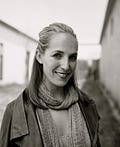



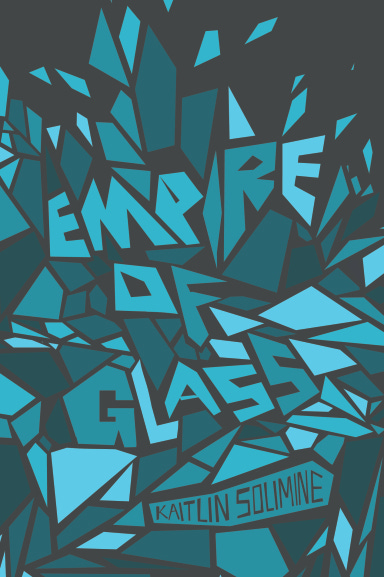
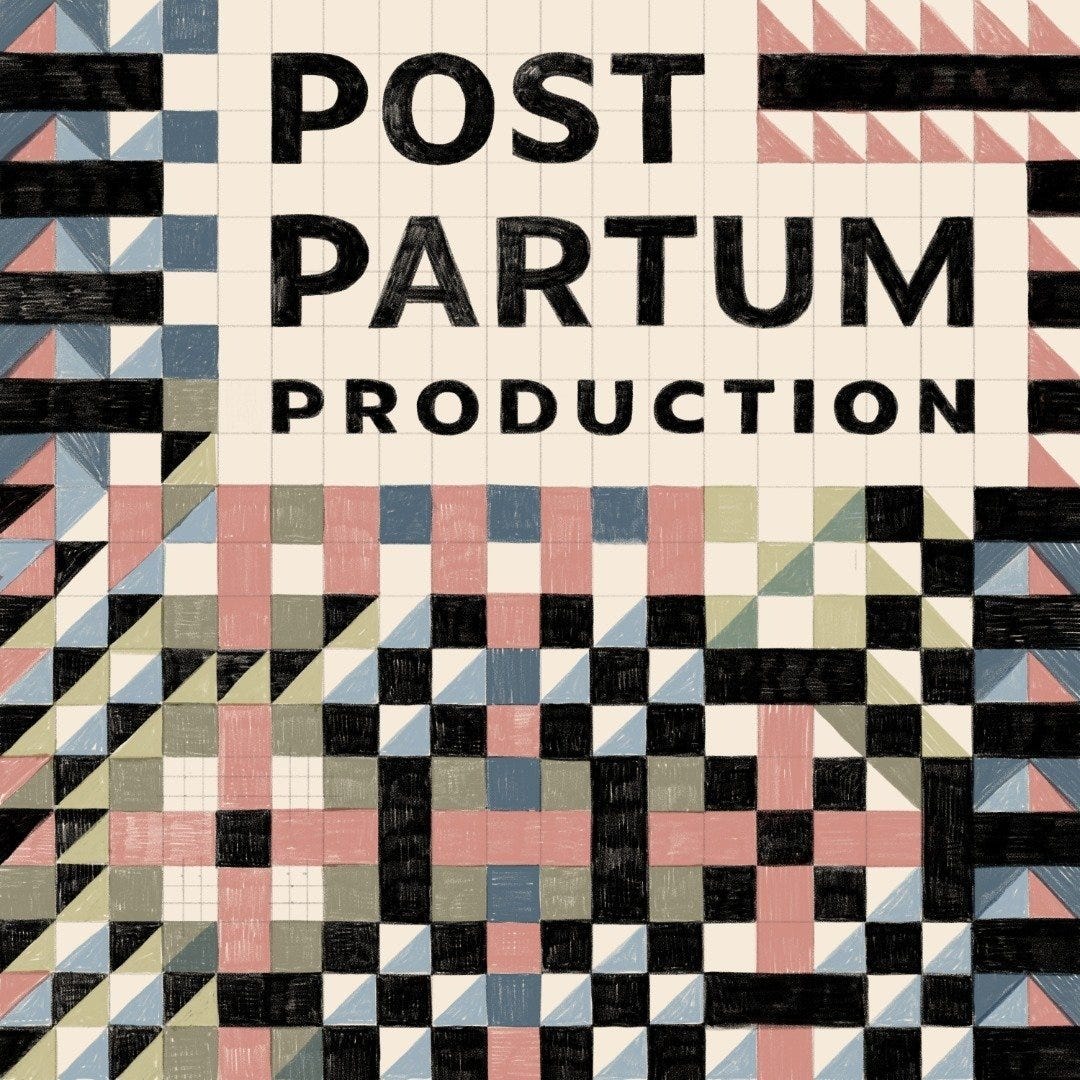
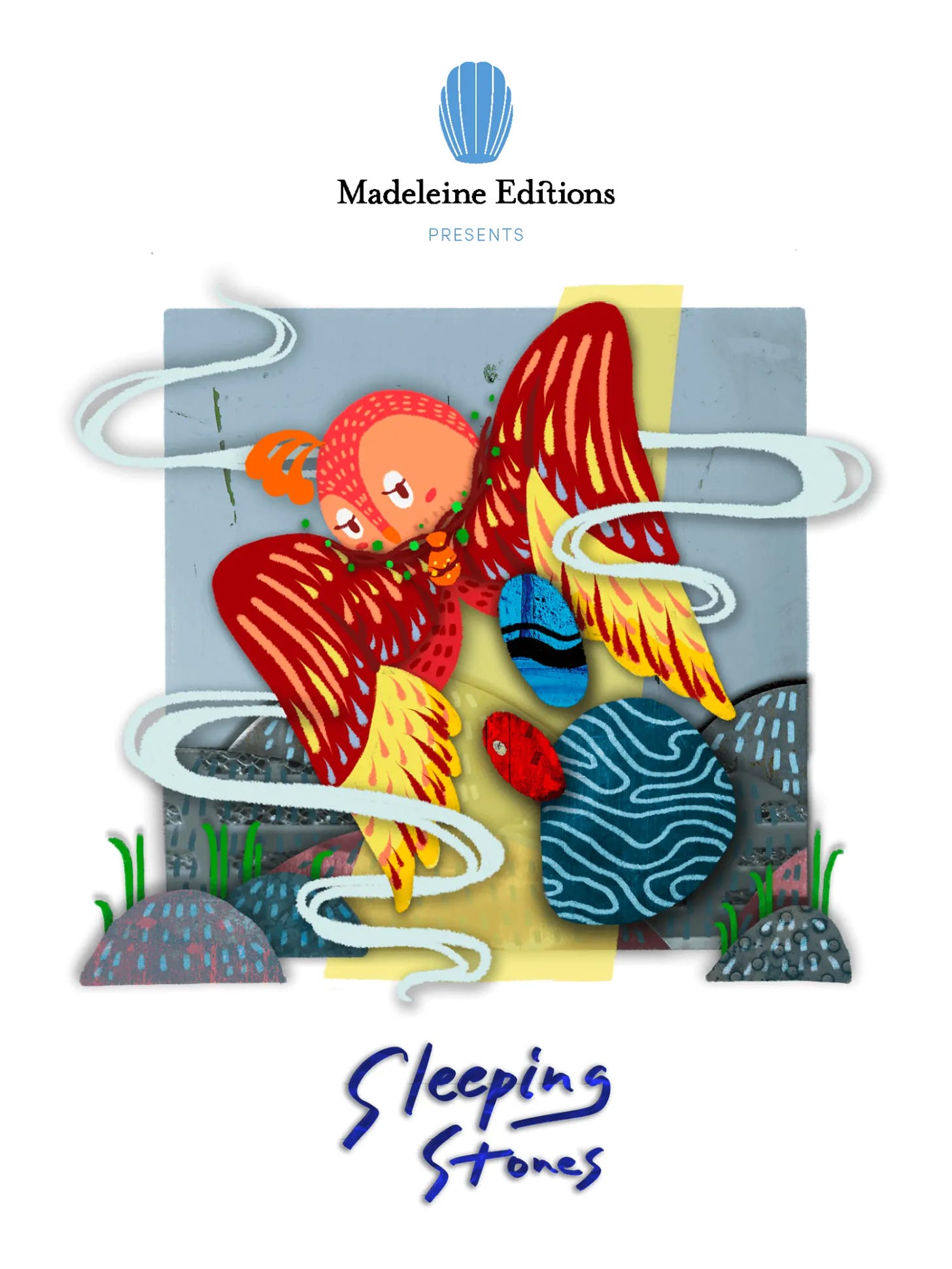
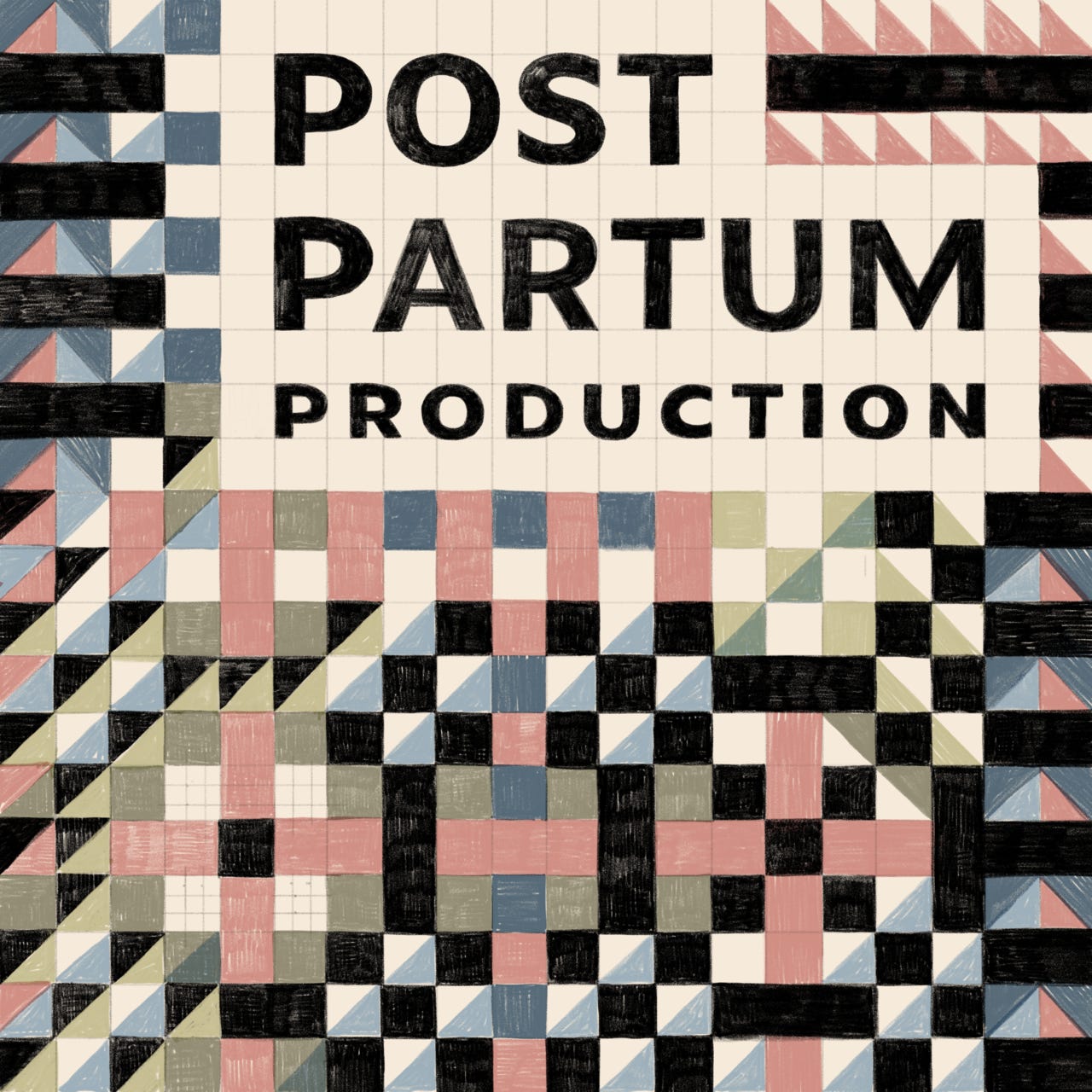
❤️
💕 this!